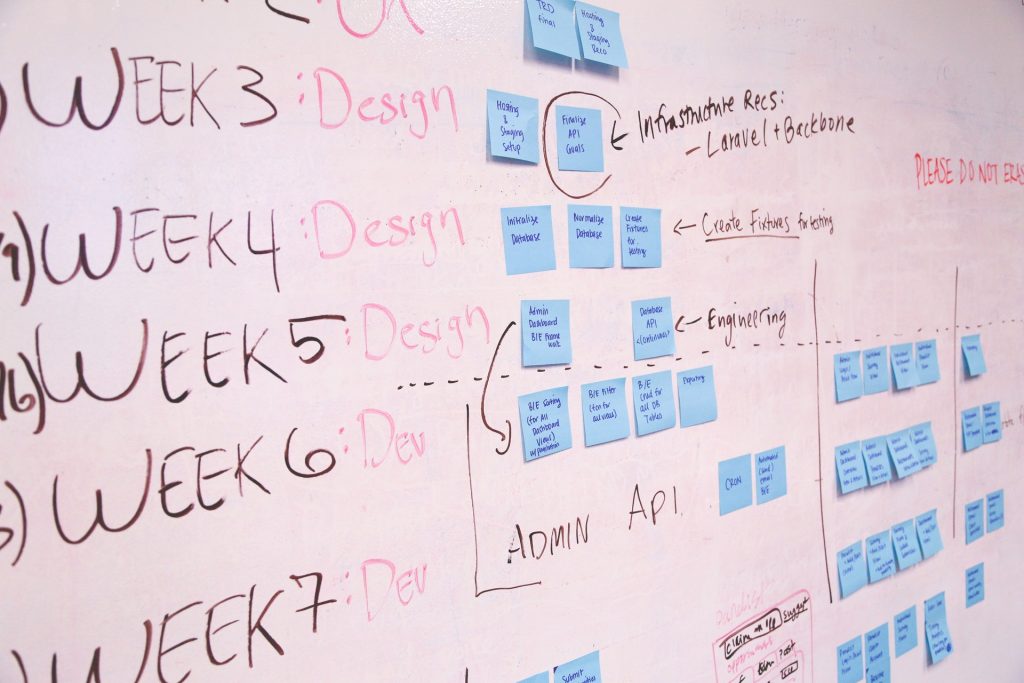
Tick-tock, tick-tock – have you ever wondered why time seems to slip through our fingers when we are faced with assignments? The battle to conquer deadlines can feel like an endless struggle no matter at what stage of academic life you are in. Fear not! We all have been there. Students often take help from websites such as Myassignmenthelp, which is an assignment help company. The professionals assist students to manage their time well and finish off their academic responsibilities on or before time.

Therefore, if you, too, are seeking ways to overcome this misery and understand the benefits of continuing education in a timely manner, this blog is for you. Today we will dig deeper and weed out the secrets of mastering the art of time management for assignments!
In this fast-paced world where distractions lurk at every corner, it is crucial to hone our time wielding skills. Hence, let us set out together on the journey of efficiency and productivity, unlocking the hidden vault of tips, tricks, and strategies to transform the way you approach your academic tasks. But first, let us start with knowing the importance of mastering this skill.
Time Management – The Fuel You Need For A Productive Drive
Time management is especially crucial for academic assignments as students juggle multiple subjects, coursework, and extracurricular activities. Effective time management in this context involves planning, organizing, and allocating sufficient time for research, writing, and revisions. Let us explore the various reasons why time management is of utmost importance for academic assignments.
1. Meeting Deadlines

Academic assignments come with specific deadlines, and failing to submit them on time can result in penalties, reduced grades, or even academic consequences. Time management ensures that students can complete their tasks well before the due date, providing ample amount of time for revisions and avoiding last-minute panic.
2. Maintaining Quality of Work
Rushing through assignments due to poor time management can compromise the quality of the work produced. When students allocate sufficient time for research, critical thinking, and writing, they can produce well-structured and well-researched papers that demonstrate a deeper understanding of the subject matter.
3. Handling Multiple Assignments

In academic settings, students often have multiple assignments and projects to complete simultaneously. Effective time management allows them to prioritize tasks, allocate time appropriately for each, and avoid feeling overwhelmed by the workload.
4. Engaging in In-depth Research
Quality academic assignments require extensive research to support arguments and claims. Proper time management enables students to spend adequate time researching and gathering relevant and credible sources to enhance the assignment’s credibility and depth.

5. Overcoming Procrastination
Procrastination is a common challenge among students, often leading to rushed and subpar work. Time management techniques, such as setting specific time blocks for working on assignments, helping students overcome procrastination, and maintaining a consistent pace in their work.
Recommended reading: The Evolution of eLearning: Trends, Benefits, and Challenges
6. Seeking Help and Feedback
Time management provides students with opportunities to seek help and feedback from teachers, professors, or peers. When assignments are completed well in advance, students have time to clarify doubts, seek guidance, and incorporate valuable feedback to improve their work.
7. Balancing Academics and Extra-curricular
Effective time management enables students to strike a balance between academic commitments and extracurricular activities. By allocating time for both, students can excel in their studies while pursuing their interests and passions outside the classroom.
8. Reducing Stress and Anxiety
Properly managing time for academic assignments reduces the stress and anxiety associated with looming deadlines and incomplete tasks. Students can approach their work with a clear and focused mind-set, leading to better performance and overall wellbeing.
9. Improving Time Estimation Skills
Time management for academic assignments helps students develop better time estimation skills. Over time, they become more adept at gauging how long tasks will take, allowing for more realistic planning and allocation of time for future assignments.
10. Building Discipline and Responsibility
Learning time management skills fosters discipline and responsibility in students. They learn to prioritize their academic responsibilities, adhere to schedules, and take ownership of their learning process.
Effective time management is a fundamental skill for academic success. By cultivating time management skills early on, students can not only excel academically but also develop valuable life skills that will serve them well in their future endeavors.
Tips & Trick To Master The Skill
Let us now explore the tips and strategies to manage time efficiently for successful academic assignments.
1. Create a Schedule and Set Priorities
- Develop a weekly or monthly schedule that includes all academic and extracurricular activities.
- Set clear priorities for each assignment based on deadlines and importance.
- Allocate more time to complex tasks or assignments that require extensive research.

2. Break Down Assignments
- Divide larger assignments into smaller, manageable tasks.
- Set specific goals for each task to track progress effectively.
- This approach helps prevent feeling overwhelmed and promotes steady progress.
3. Use a Planner or Time Management Tool
- Utilize a physical planner or digital time management tool to keep track of assignments, deadlines, and study sessions.
- Set reminders for upcoming tasks to ensure timely completion.
4. Avoid Procrastination
- Identify the reasons behind procrastination and work on addressing them.
- Use techniques like the “Two Minute Rule” – if a task takes less than two minutes, do it immediately.
- Reward yourself for completing tasks promptly to reinforce positive behavior.
5. Create Dedicated Study Spaces
- Designate specific areas for studying and completing assignments.
- A dedicated study space helps improve focus and productivity.
6. Minimize Distractions
- Identify common distractions and find ways to minimize or eliminate them during study sessions.
- Turn off notifications on electronic devices, or use apps that block distracting websites.
7. Practice the Pomodoro Technique
- Divide study time into intervals of 25 minutes (Pomodoro) followed by a 5minute break.
- After four Pomodoro, take a longer break (e.g., 1530 minutes).
- This technique helps maintain focus and prevents burnout.
8. Utilize To-Do Lists
- Create daily to do lists with specific tasks to accomplish.
- Crossing off completed tasks provides a sense of achievement and motivation.
9. Set Realistic Goals
- Be realistic about what can be achieved within a given timeframe.
- Avoid overcommitting to tasks that may lead to rushed and subpar work.

10. Practice Time Blocking
- Allocate specific time blocks for different tasks or subjects.
- This method promotes focused work and prevents multitasking.
11. Prioritize Health and Wellbeing
- Ensure adequate sleep, regular exercise, and a balanced diet.
- A healthy body and mind are essential for maintaining focus and productivity.
12. Use Online Resources Wisely
- Take advantage of digital tools and resources for research and organization.
- Online databases, citation generators, and note-taking apps can streamline the academic process.
13. Seek Help When Needed
- Do not hesitate to ask for help from teachers, professors, or classmates if you are facing difficulties with assignments.
- Seeking assistance early on can prevent misunderstandings and improve the final output.
14. Plan for Unforeseen Events
- Leave some buffer time in the schedule to accommodate unexpected interruptions or emergencies.
- Flexibility is crucial to adapt to unforeseen circumstances.
15. Review and Reflect Regularly
- At the end of each day or week, review the progress and evaluate the effectiveness of time management strategies.
- Adjust the approach as necessary to improve efficiency and productivity.
Now that you know all about time management, you, too, will be able to balance your life efficiently. Initially, you might need to take assistance from professionals of Myassignmenthelp, an assignment help company.
With these hacks, you can bid farewell to procrastination and embrace a newfound harmony between time and accomplishment. Rewrite the story of how you conquered your assignments, one well-managed minute at a time!
Conclusion
In the fast-paced world of software development and design, managing time effectively for assignments is not just a skill—it’s a necessity. At Designveloper, our extensive experience in delivering high-quality projects on schedule has taught us the importance of time management in ensuring both productivity and work-life balance. Drawing from this reservoir of knowledge, we offer insights and integrated advice on how to manage time effectively for assignments, ensuring that tasks are not just completed, but accomplished with efficiency and excellence.






Read more topics





























































